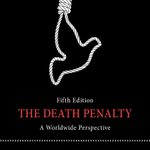Entries by Death Penalty Information Center
News
May 27, 2008
Texas Death Row Inmate May Be Exonerated As Prosecution Recommends Overturning Conviction
Based on statements from the District Attorney’s office, it appears that Texas wrongly convicted Michael Blair and sentenced him to death in 1994 for the sexual assault and murder of 7‑year-old Ashley Estell. The case led to the passage of“Ashley’s Laws” to increase punishments for such offenses. Collin County District Attorney John Roach announced that new DNA tests show no physical evidence linking Blair to the crime. The only forensic evidence that pointed to Blair for…
Read MoreNews
May 23, 2008
Georgia Death Sentence Commuted to Life Without Parole
The Georgia Pardons and Parole Board commuted Samuel Crowe’s death sentence to life without parole just two and a half hours before his scheduled execution on May 22, 2008. The five-member Board’s statement said,“After careful and exhaustive consideration of the request, the board voted to grant clemency.” The Board had heard from several people who knew Crowe, including pastors and a former corrections officer, who said,“I felt like if they released him that…
Read MoreNews
May 21, 2008
Texas Jury Chooses Life Sentence In High Profile Case
In a potential death penalty case in Houston, Texas, a jury sentenced Juan Quintero to life without parole on May 20 for the murder of a police officer. One juror, Tiffany Moore, described her experience as very emotional,“I was torn up. I was crying.…I still feel we came to the right decision,” she said.“We could never bring Rodney back. I feel very sad for the family, losing a loved one.” Moore added that the sentencing phase was more difficult for the jury than the…
Read MoreNews
May 20, 2008
NEW VOICES: Former New Jersey Supreme Court Justices Discuss the Failure of the Death Penalty Law
Former members of the New Jersey Supreme Court recently shared their insights on the death penalty at a symposium sponsored by Seton Hall and Fordham law schools, and by the the New York City and New Jersey State Bar associations. Five former members of the Court, including two chief justices, reviewed the 25 years of capital punishment in New Jersey before 2007’s repeal of the death penalty. Their conclusions echoed the opinion of Justice Barry Albin in…
Read MoreNews
May 19, 2008
Execution Stay Continued in Delaware
A federal judge in Delaware extended a stay on all executions in the state on May 15, 2008, pending an evidentiary hearing scheduled for June. One execution in Delaware was stayed by the same judge, District Court Judge Sue L. Robinson (pictured), in May 2006, pending a determination of the constitutionality of the state’s use of lethal injection. In 2007, the impact of the eventual ruling in that case was extended to all of the state’s death row inmates. The stay…
Read MoreNews
May 16, 2008
Mississippi Preparing to Execute Man Despite Strong Evidence of Mental Retardation
Earl Berry is scheduled to be executed on May 21 in Mississippi, despite evidence that he has mental retardation. Judicial review of this evidence has been denied because his former lawyers failed to file the evidence in a timely fashion. This would be the second execution since the U.S. Supreme Court approved Kentucky’s method of lethal injection on April 16. Last month, a psychologist concluded that Berry had an IQ of 75 or below and“significantly…
Read MoreNews
May 15, 2008
Maryland Creates Commission to Study Death Penalty
Maryland Governor O’Malley signed legislation creating a commission to study the death penalty on May 13. The Maryland Commission on Capital Punishment is mandated to reflect on all sides of the issue and its members will include representatives from law enforcement, a prosecutor, a public defender, and family members of murder victims. The commission begins its work in July and should submit its findings by December 15, 2008. The following…
Read MoreNews
May 14, 2008
BOOKS: The Death Penalty: A Worldwide Perspective
The Death Penalty: A Worldwide Perspective by Roger Hood and Carolyn Hoyle is the Fourth Edition of a text that highlights the latest developments in the death penalty around the world. Roger Hood utilizes his experience as a consultant to the United Nations’ annual survey of capital punishment in compiling a wide range of information from non-governmental organizations and academic literature. The book explores both the advances in legal challenges to…
Read MoreNews
May 14, 2008
NEW VOICES: American Bar Association President Calls for Death Penalty Moratorium
William Neukom, the President of the American Bar Association, recently wrote about the death penalty in conjunction with a visit to Duke University Law School in North Carolina, where he addressed the graduating class. In an op-ed, Mr. Neukom noted that the ABA had closely studied the death penalty systems of eight states and found repeated failures to meet minimum standards advocated by the ABA. He renewed the call of the ABA for a halt…
Read MoreNews
May 13, 2008
U.S. Supreme Court Agrees to Hear Virginia Case on Quality of Representation
On May 12, the U.S. Supreme Court granted certiorari in Bell v. Kelly, No. 07 – 1223, where the petitioner challenged a lower court’s dismissal of his claim of ineffectiveness of counsel. Edward Nathaniel Bell stated that his trial lawyers presented no mitigating evidence on his behalf at his sentencing hearing, despite the existence of many sympathetic facts that might have led a jury to vote for a life sentence. The state court presented with this…
Read More
